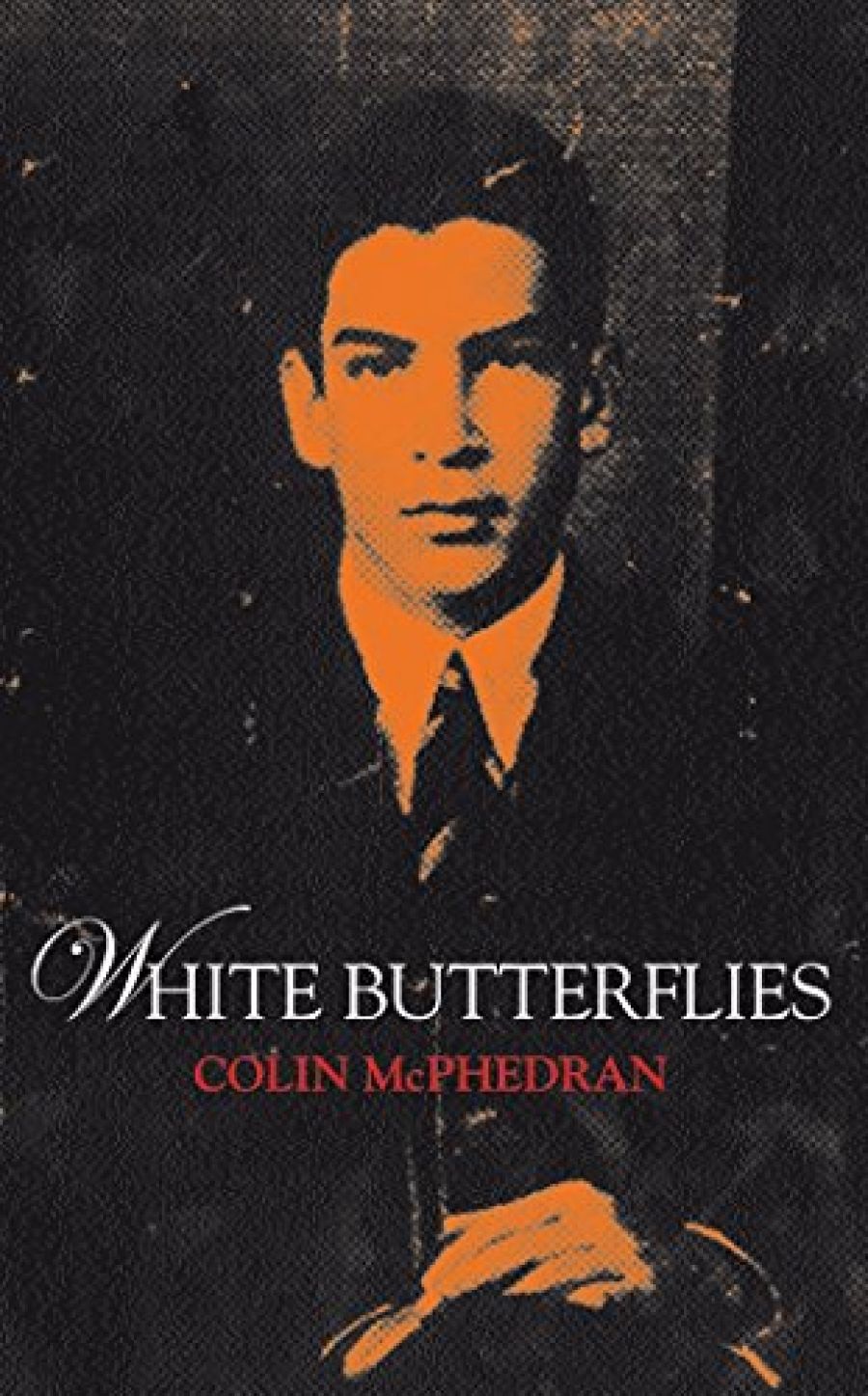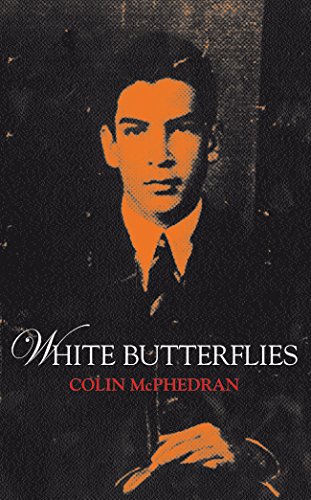
- Free Article: No
- Contents Category: Biography
- Review Article: Yes
- Article Title: A Searing Trail with Butterflies
- Online Only: No
- Custom Highlight Text:
Colin McPhedran, the son of a Burmese mother and a Scottish oil company executive father, was living a comfortable middle-class colonial life in Central Burma with his mother, sister and two brothers when the Japanese invaded the country in 1941. He was eleven years old. The invasion spread terror throughout the population, which feared the notorious savagery of the Japanese army. The European and mixed races felt particularly threatened, and Colin’s mother made the fatal decision to flee their comfortable villa and escape to India. The children’s mixed parentage concerned her; she resolved to undertake the journey with her three younger children. She was especially anxious about her fifteen-year-old daughter whose youthful European beauty would, she thought, make her a special target for sexual abuse. Colin’s father did not play any part in this disastrous decision, having escaped to Calcutta when Rangoon fell to the Japanese.
- Book 1 Title: White Butterflies
- Book 1 Biblio: Pandanus, $29.95 pb, 239 pp
- Book 1 Cover Small (400 x 600):

- Book 1 Cover (800 x 1200):

Escape by air was, by then, impossible and other escape routes had closed, leaving the family with no alternative but to walk to India along the Hukawng Valley, an inhospitable, swampy and mountainous trail. Up to 20,000 refugees tried to escape this way; few made it. Thousands lost their lives in the attempt, including Colin’s mother, brother and sister. He alone survived, and only just. McPhedran’s account of his horrendous three-and-a-half months’ trek along this trail is the core of White Butterflies, which covers the nine years of his life from the escape from Burma to his arrival in Australia.
The book opens with a description of a miserable Colin at a Catholic boarding school in Burma. Immediately, there is a sense of the friction between his Burmese mother, who didn’t want him to go there, and his Scottish father, who insisted he should. Colin’s father lived 400 miles away from his family and is mostly absent from events, but is nevertheless a dominant presence in Colin’s story, as is the uneasy relationship between his parents.
There follows a description of their sheltered lives at Maymyo, in stark contrast to the wretchedness of their forthcoming journey, and the increasing threat from the Japanese, which eventually forced them to flee. McPhedran succinctly describes the immediate loss of dignity and the descent into squalor and hardship that brings home the desperate plight of refugees everywhere, echoed yet again today. The valley, which has a miserable monsoonal climate, led through wild and mountainous country, with waterways to cross and mosquitoes, rain and the threat of Naga headhunters to face. Along with thousands of others, the small party suffered the ravages of hunger, thirst, dysentery, malaria and ever-present leeches. They endured the sight of dead and dying refugees along the trail. The stench was inescapable. The corpses were frequently cloaked in hundreds of white butterflies, like a shroud, prompting McPhedran’s title – a metaphor for life in death. The sight of the corpses was a constant reminder of the fate that might await them.
The worst blows came almost at journey’s end with the lingering deaths of his mother, brother and sister. After a struggle, their strength simply gave way; they succumbed to the ravages of the journey. This almost unbearable loss is handled with dignity and compassion, and is deeply moving. McPhedran himself was rescued at the border, but in such poor health that it took months of hospitalisation in India to recover.
The ordeals and sufferings endured on the trek are vividly and chillingly told, leavened by the warmth of human relationships and kindnesses that soften the otherwise bleak narrative. McPhedran’s story is grim, but his observations are sharp, his memories clear and devoid of self-pity. The writing is fluent and lucid, the list of acknowledgments indicating sound advice in telling his tragic tale and giving it a professional polish.
McPhedran goes on to describe the four subsequent years in India, which he loved, and where he recovered his health, completed his education and grew to manhood, mostly alone, but with his absent father’s financial support. He then went to Britain, where he met his father’s ‘other’ family. This new dimension to his father’s life embittered him even more as he remembered the terrible death of his beloved mother, and prompted a sudden, happy decision to emigrate to Australia.
Colin McPhedran was clearly a victim of colonialism, torn between two cultures, both with strong influences. His mother was a warm and loving woman with influential connections in Burmese society, while his father was a cold Scottish businessman. The underlying tensions of McPhedran’s family life emphasise the difficulties inherent in interracial, colonial marriages and portray an unfeeling arrogance in his colonist father’s attitude to his Burmese family. McPhedran does not condemn his father, but the latter comes across as a cold and selfish man – a racist and a bigamist who could have done more for his vulnerable family.


Comments powered by CComment